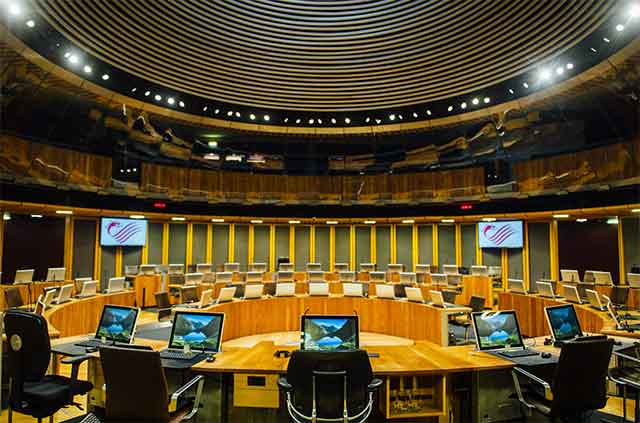Senedd members warned a shortage of teachers could undermine a target to reach a million Welsh speakers and double daily use of the language by 2050.
Eluned Morgan, standing in for Jeremy Miles, who resigned as economy and Welsh language secretary that day, gave a statement on the Welsh education bill on July 16.
She said the bill, which was introduced in the Senedd this week, will give every child in Wales a fair chance of becoming Welsh speakers.
Baroness Morgan told the debating chamber or Siambr that the bill would put the vision of a million Welsh speakers on a statutory footing.
But opposition parties warned the success of the bill will hinge on the teaching workforce.
‘Blunt instrument’
Tom Giffard raised concerns about the recruitment and retention of Welsh-language teachers, questioning if the workforce is adequately prepared to meet the challenge.
The Conservatives’ shadow Welsh language secretary said teachers who teach through the medium of Welsh are, on average, older than their counterparts in classrooms.
Mr Giffard warned the bill will add to the workload of teachers who are already grappling with a new curriculum and additional learning needs reforms.
He supported moving away from the “blunt instrument” of “fluent” or “non-fluent” to the Common European Framework of Reference for Languages (CEFR).
But he cautioned against “lowering the bar” to count people towards the target of a million Welsh speakers set out in the Cymraeg 2050 strategy.
‘Ambition’
Plaid Cymru’s Heledd Fychan agreed the workforce will be pivotal to the success of the bill.
“If we don’t have the numbers in schools, then we won’t be able to achieve that ambition,” she said. “We do need to see definite targets in terms of increasing the number able to teach through the medium of Welsh because we aren’t hitting the targets as they currently stand.”
Ms Fychan, who represents South Wales Central, also raised concerns about dual-stream schools being seen as the solution.
She said: “Only a small number of schools operate according to this model and I’m not aware of comprehensive research that demonstrates this model works in Wales.”
Arguing the best way for a child to learn is to be immersed in Welsh-medium education, she said most children continue to be denied the chance to become confident Welsh speakers
‘Huge change’
Mike Hedges, whose daughter teaches in a Welsh-medium school on Ynys Môn, hailed a “huge improvement” in the teaching of Welsh in English-medium primary schools.
“I think there really has been a huge change,” said the Labour backbencher. “When I visit English-medium schools in Swansea, like I did on Monday, I hear Welsh spoken, see it on classroom walls and see Welsh on notice boards.”
Mr Hedges, who represents Swansea East, said this has been made possible by a one-year Welsh-language sabbatical course for primary school teachers.
Rhys ab Owen, who sits as an independent, called for a secondary school in south Cardiff to ensure Welsh-medium education is available in one of Wales’ most deprived communities.
The South Wales Central MS also raised concerns about unequal access to Welsh-medium education for disabled children and young people.
‘Deficiencies’
Cefin Campbell was involved in development of the bill as part of Plaid Cymru’s now-collapsed cooperation agreement with the Welsh Government.
Mr Campbell, who established the first of Wales’ 22 Menter Iaith, which provide community support for learning the language, said: “What concerns me a great deal … is the deficiencies in terms of a bilingual workforce.”
The Plaid Cymru MS for Mid and West Wales raised concerns about low numbers of students studying A-level Welsh.
He said: “But it isn’t Welsh alone that is a cause of concern. Unless we recruit far more Welsh-medium subject teachers, the objectives of this bill are never going to be achieved.”
The former lecturer urged the Welsh Government to set targets for the recruitment and training of many more Welsh-medium teachers.
‘Transformational’
Baroness Morgan recognised the workforce challenges, saying the Welsh Government is seeking to attract more people to train to become teachers.
The health secretary, who was previously responsible for the language, said incentives are offered to get more teachers to train through the medium of Welsh.
She stressed the census will determine progress against the target of a million Welsh speakers, raising concerns that people “tick that they don’t speak Welsh when they do”.
Baroness Morgan, who attended the first Welsh-medium school in Cardiff, pointed to “huge” progress and “transformational” change over the past 50 years.
She told the chamber: “When I was going to school, people would throw stones at our bus because they didn’t want a Welsh school in their area. That’s the reality of the situation.”

